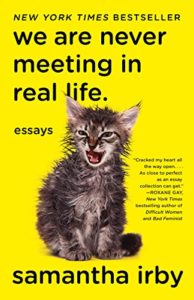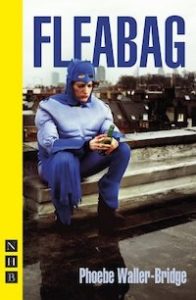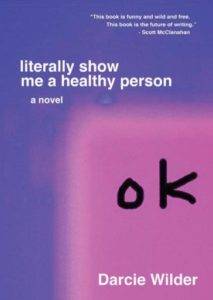The Set-Up
When you graduated with a college degree and $40,000 in student loan debt, the assumption was there would be a good paying job at the end of the tunnel. So you applied and interviewed, applied and interviewed—rinse, repeat, etc.—and after circulating through this cycle a dozen times, you got a job. It was entry-level and didn’t pay well, but everyone told you you’ve got to start somewhere (also, BE GRATEFUL!), so you took the job and moved into a studio apartment that was smaller than your childhood bedroom. It had a healthy cockroach infestation and you thought, well it’s better than living at home or with a bunch of roommates, and it will only be for a little while—until you got a raise or a better paying job.
Fast forward two years and those cockroaches have names and you’re still making the same amount of money. Sure, you have more responsibilities than you did when you started, and sure you’re expected to answer emails at home, and yeah you spend your weekend teaching Pilates—but at least you’re paying your bills on time, and at least you have health insurance. Maybe you should look for a new job, but when you look at hiring sites, jobs that aren’t entry-level require five to six years of experience. Going back to school is an option, but the $500 you’re paying a month in student loan debt is bad enough; do you really want to add to it? You haven’t done laundry in a month, your license needs renewed but when is there time to wait in line at the BMV? You have shoes you bought online that don’t fit, but the hassle of returning them seems insurmountable. You’re tired and you’ve become stuck. Anymore, a perfect day is when you get to wear sweatpants.
You: a millennial.
An Explanation
A few weeks ago Anne Helen Petersen’s (Too Fat, Too Slutty, Too Loud: The Rise and Reign of the Unruly Woman) very popular Buzzfeed article “How Millennials Became the Burnout Generation” elucidated the plight of an entire generation of tired adults. Why do Millennials feel paralyzed by simple errands like registering to vote, going to the post office, paying bills, waiting in lines? Well, here’s a few highlights from Petersen’s article—through social media “branding” we’ve become “products”; working too hard has “facilitated our exploitation” in the workforce; we’re trained to erase our problems with medication, rather than slowing down and reevaluating; self-care is a new “commoditized” “exhaustion” that’s advertised as a solution; and we’ve been groomed since childhood to achieve perfection. It’s discouraging, rage-inducing, and basically hits the nail on the head.
Burnout isn’t unique to Millennials, but we’ve definitely cornered the market and I think the publishing industry has caught on.
So, if you’re feeling strained, feeling alone, feeling overwhelmed, or apathetic—don’t worry, you’re not alone! Because look: there are plenty of books about burnout too!
These are not all by Millennials or even exclusively about Millennials, but they are about people suffering from depression (many verge into mental health issues), disillusionment, or just plain ‘ole burnout.
Finding Catharsis
What’s Eating Gilbert Grape by Peter Hedges
This is an absolute favorite book that I read oodles and oodles of times years ago. It’s miles better than the movie, which I’ve never been able to watch all the way through. Gilbert is twenty- four, has a job at a grocery story and lives at home with his family. His mother, who is suffering from depression after their father died by suicide, is eating nonstop, and Gilbert and his older sister have to take responsibility for her and their younger brother. It’s a burnout book with heart.
My Year of Rest and Relaxation by Ottessa Moshfegh
An apathetic 20-something decides to sleep a year with the hope that when she wakes up her problems will disappear. This modern day Sleeping Beauty achieves her induced coma with sleeping pills she gets from a loony psychiatrist. When she’s not asleep she watches Whoopi Goldberg movies. “Oh, sleep. Nothing else could ever bring me such pleasure, such freedom, the power to feel and move and think and imagine, safe from the miseries of my waking consciousness.”
Hyperbole and a Half: Unfortunate Situations, Flawed Coping Mechanisms, Mayhem, and Other Things That Happened by Allie Brosh
Short personal anecdote: I adopted a dog from the animal shelter, and when I read her description online it said that she had “no manners,” but when I went to the shelter to meet her she was really sweet, and she had freckles on her nose, so I brought her home, and I’m sure you already guessed—she became demon dog! I’d find her in the middle of the dining room table scrounging for food, she pulled the Thanksgiving turkey off the counter, barked constantly, ate a chair, ran away more than once, she’d go nuts when she saw other dogs on leashes, and jumped on everyone that came through the door. It was exhausting and emotionally draining, and I didn’t know what I was going to do. When I read Hyperbole and a Half, Brosh made me feel so much better, because she also had dogs with no manners! She was also dealing with depression, and I related to her story so much.
 We Are Never Meeting in Real Life by Samantha Irby
We Are Never Meeting in Real Life by Samantha Irby
Samantha Irby is not afraid to talk about sex, bowel movements, or depression. She’s a hilariously fearless essayist that’ll make you crack up over lewd bathroom situations, and cry as she puts her demonic cat—Helen Keller—to sleep. For me, David Sedaris has always been the standard-bearer of the essay, but I think Irby is hot on his heels.
After Dark by Haruki Murakami
Nothing says burnout to me like insomnia. Murakami’s haunting prose and meandering plot takes us through one night in the lives of a few sleepless people in Tokyo.
 Fleabag by Phoebe Waller-Bridge
Fleabag by Phoebe Waller-Bridge
A brilliant play. A brilliant TV show. “I have a horrible feeling I’m a greedy, perverted, selfish, apathetic, cynical, depraved, mannish-looking, morally bankrupt woman who can’t even call herself a feminist.” Fleabag has just lost her best friend to accidental suicide and her business is struggling, but she’s still trying to power through, even though life is hard.
Severance by Ling Ma
This is a wry take on the end-of-the-world pseudo-zombie-apocalypse novel. A fungus, spread through things we buy that are “made in China,” is turning people into mindless automatons of their former selves. They continue doing dishes in a mindless loop, or sit at their office desk, or continue driving a taxi until they die from starvation. People are stuck in the same routine until they die.
 Erasure by Percival Everett
Erasure by Percival Everett
A sardonic story about Thelonious (Monk) Ellison, an African American author who wants to be identified as an author, not classified separately by his race. He’s tired of books like “We’s Lives in Da Ghetto” getting acclaim for featuring “authentic” African American experiences, while his more academic books don’t get published. So while dealing with tragedy and new responsibilities in his personal life, Monk decides to write a parody of “We’s Lives in Da Ghetto,” which of course becomes hugely popular.
Convenience Store Woman by Sayaka Murata, translated by Ginny Tapley Takemori
Keiko takes a job at a Japanese convenience store because she loves the unchangeable routine of stocking shelves and working at a cash register. But her parents worry about her choices, so she decides to pretend to date a man she meets at the convenience store. The man is immature and irresponsible, and Keiko finds herself in a pickle of a situation. A story about what happens when we let society’s expectations overrule our own happiness.
 Literally Show Me a Healthy Person by Darcie Wilder
Literally Show Me a Healthy Person by Darcie Wilder
I haven’t read this yet. I want to read it, because it’s supposed to be about tragedy and expectations that is “a beating heart at the intersection of literature, poetry, and the internet.” It’s supposed to be about millennial sadness, aka burnout. I didn’t include any poetry on this list, but maybe that could be a whole new list.
“My candle burns at both ends;
it will not last the night;
But ah, my foes, and oh, my friends—
It gives a lovely light”
When Edna St. Vincent Millay wrote this at the beginning of the 20th century it galvanized a whole generation of young people. I think it might apply to Millennials too.
Stay strong!
(Here’s another great reading list for Millennial burnout, because who said you could ever read too many books about burnout?!)










